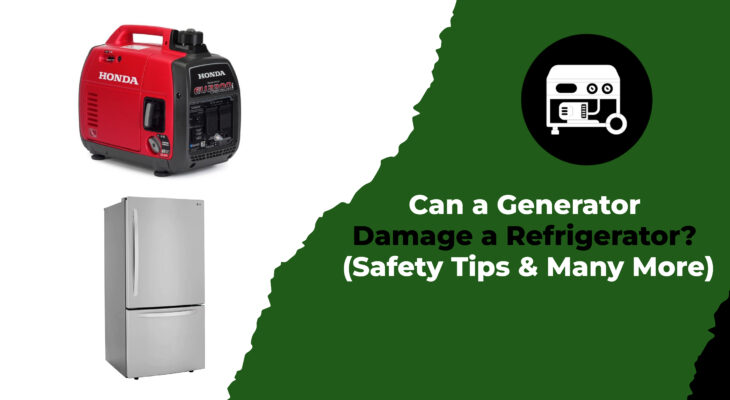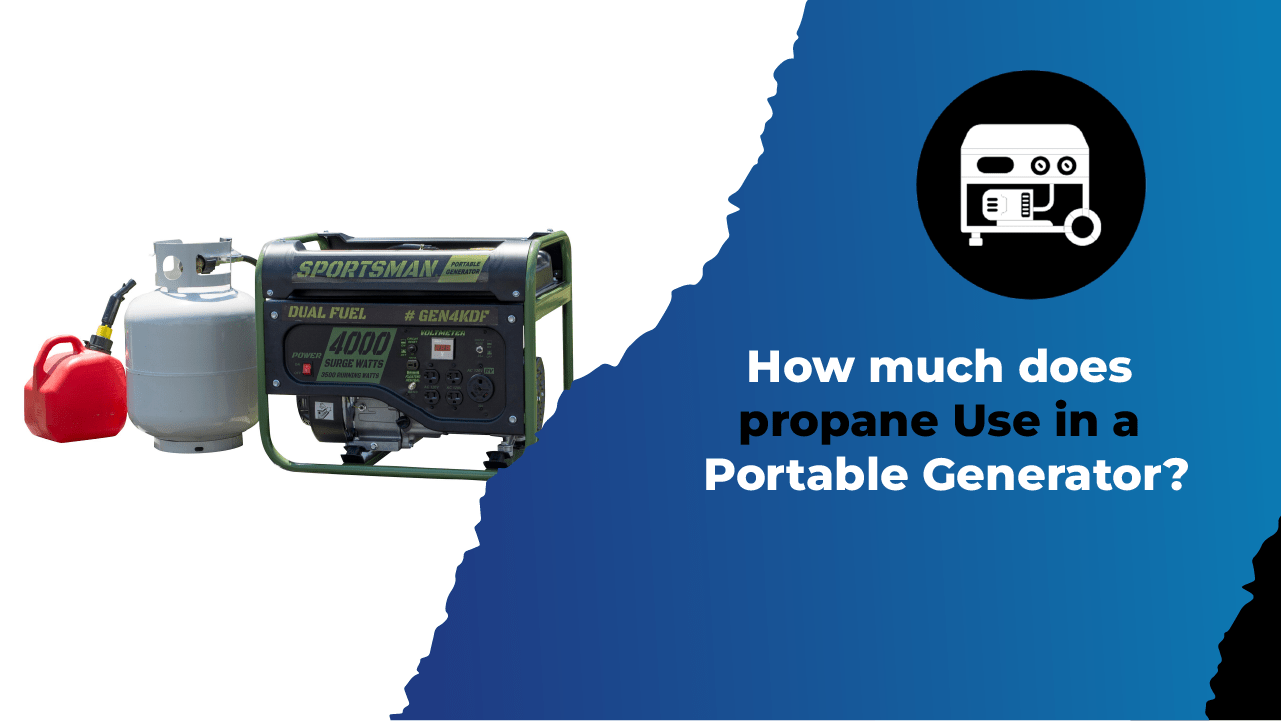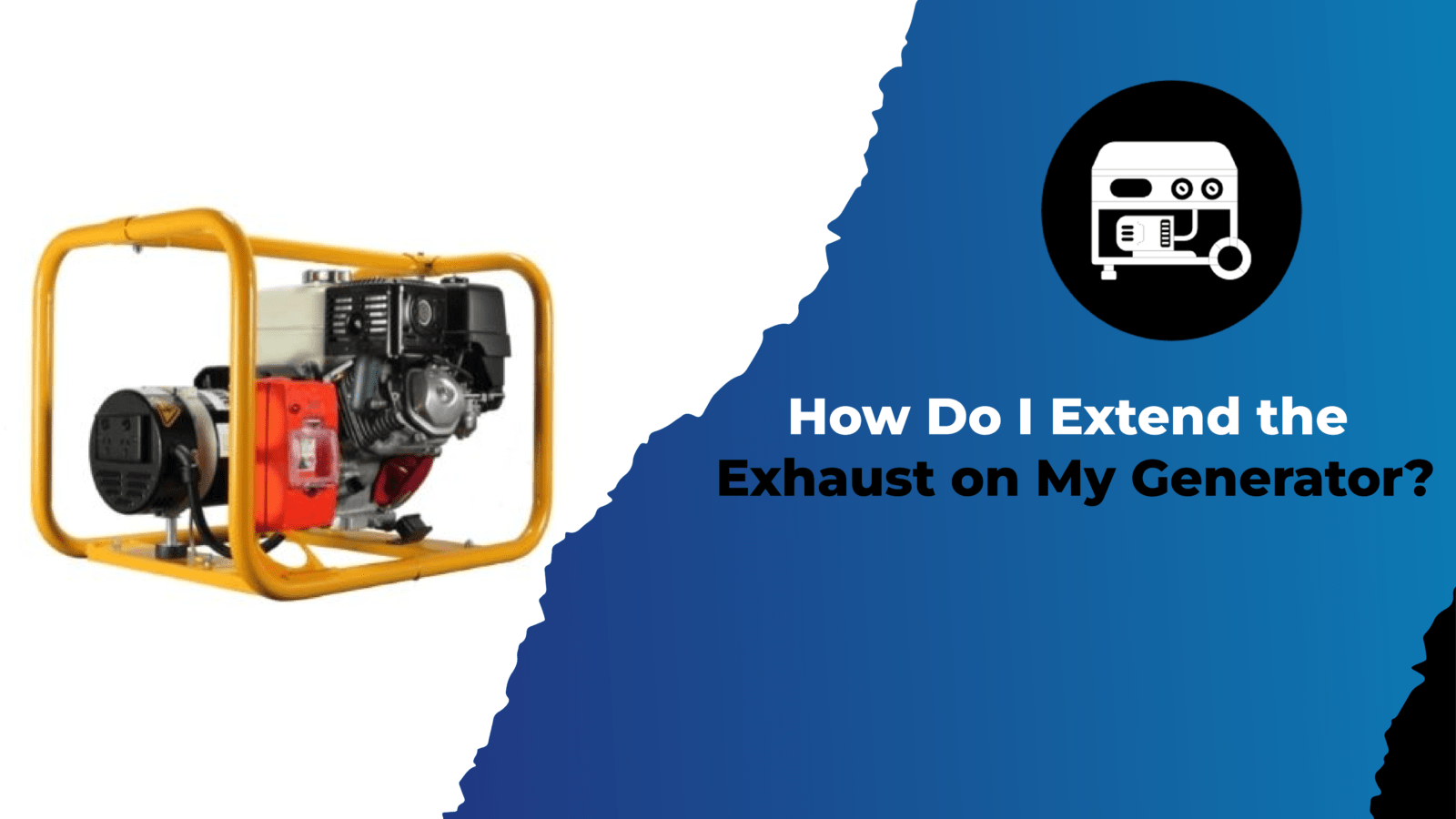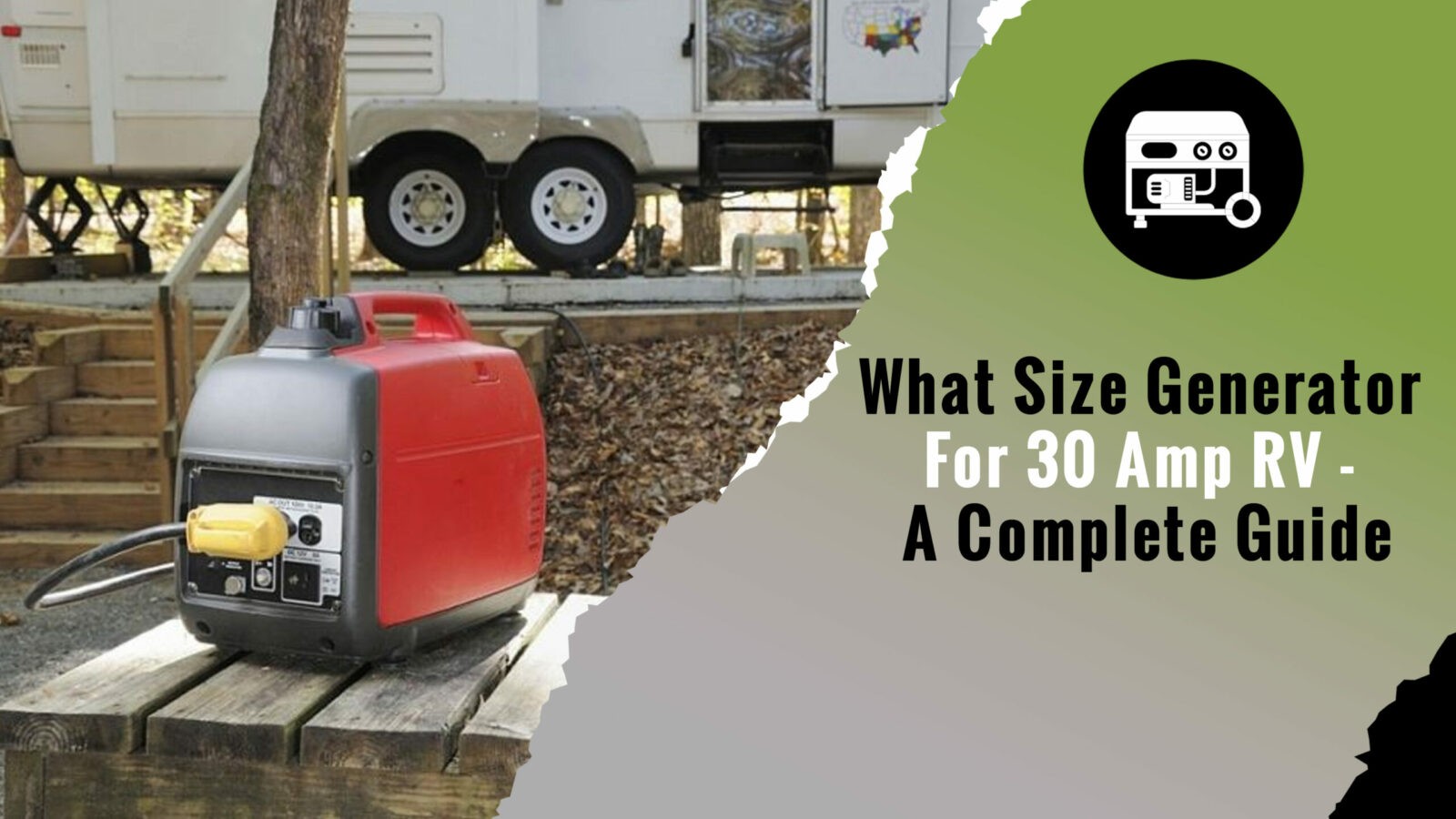All of us think that all the appliances can be connected to the generator as long as the generator has enough fuel sources. But Wait! It’s not true all the time. A refrigerator is a heavy electric appliance that needs a high voltage for its operation.
First of all, if you want to connect the refrigerator to your generator, make sure that the generator has enough power capacity to run it. A refrigerator usually works on 800 to 1200 watts and for that, your generator must have a capacity of 2000 watts. Anything less than these watts will damage your refrigerator. To know the exact answer that what causes the damage and how long to run a refrigerator in a generator keep up with us!
How many watts do a generator need to run the refrigerator?
The precise answer is 2500 – 3000 watts if you want to run a refrigerator or freezer on the generator. Although there are generators available in the market that run on low voltage so read the manual where everything is mentioned and then make a choice of buying a generator of exact watts.
Our team will recommend you buy a generator of at least 3000 watts if you want to run all the appliances in your home.
Can a generator damage a refrigerator?
Yes, a generator can damage a refrigerator. The generators that are used for homes have a low wattage whereas refrigerators need high wattage for their work. For example, if you have a generator that has a low wattage than the refrigerator, it would fail to produce enough energy and thus stop. This sudden fluctuation in power could cause damage to the refrigerator.
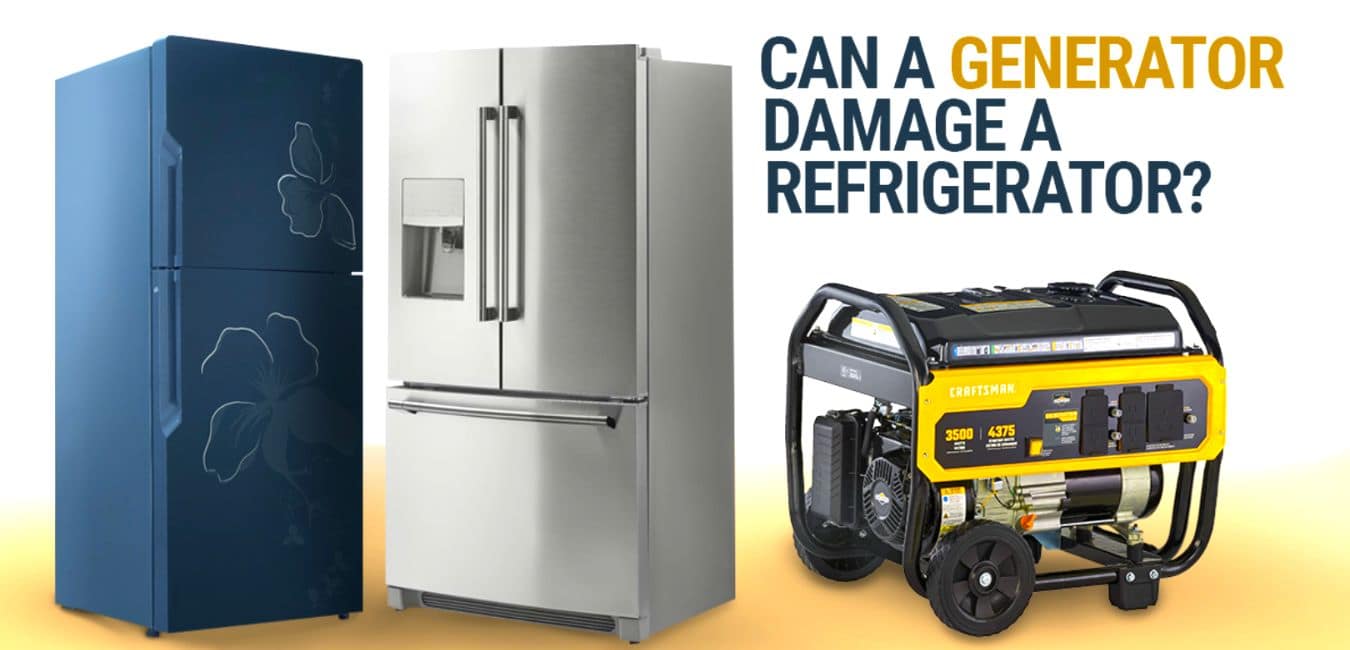
The second thing that can cause damage to your refrigerator is a power outlet or socket. Low-quality or low-capacity sockets don’t have enough capacity to carry power resultantly they damage your refrigerator.
Thirdly, Cable that carries current to the refrigerator must be of high quality and have the capacity to carry enough current. If it fails to do so, it can be very dangerous for your refrigerator.
Fourthly, overloading is also one of the causes that can be harmful to your refrigerator. Before turning all the appliances on, take check whether the generator isn’t overloaded. Otherwise, it will be highly risky for all the appliances, not just one.
So before purchasing a generator check its voltage and the voltage of your appliances. Buy the one that is most suitable for your needs.
How to Manage power Consumption?
This is a critical question that almost all generator owners must have in their minds. You have a generator but it doesn’t have sufficient ability to power all your appliances, at this point you will feel a bit frustrated. But don’t worry, we will explain this to you.
Turning on all appliances on one generator
Turning on all the appliances on one generator is a bit risky. As the starting watts vary from the running watt. Let’s suppose, you have a generator having a 3000 watts capacity, and you know that refrigerator needs 1200 watts for running. But people usually misunderstood this and it causes them great damage. When the refrigerator starts its watts kick the 2000 watts, then later, the watts come down.
So make sure before turning on all the appliances in the single generator that it has the capacity to kick start all the appliances at once.
Turning on the only Refrigerator on one generator
Turning on a refrigerator on a single generator is not risky. There is a sigh of relief in this situation that your generator would not face any overloading issues. Suppose, you have a generator of 2000 watts or above and the refrigerator needs 1200 watts. You have some extra watts if sudden fluctuation occurs.
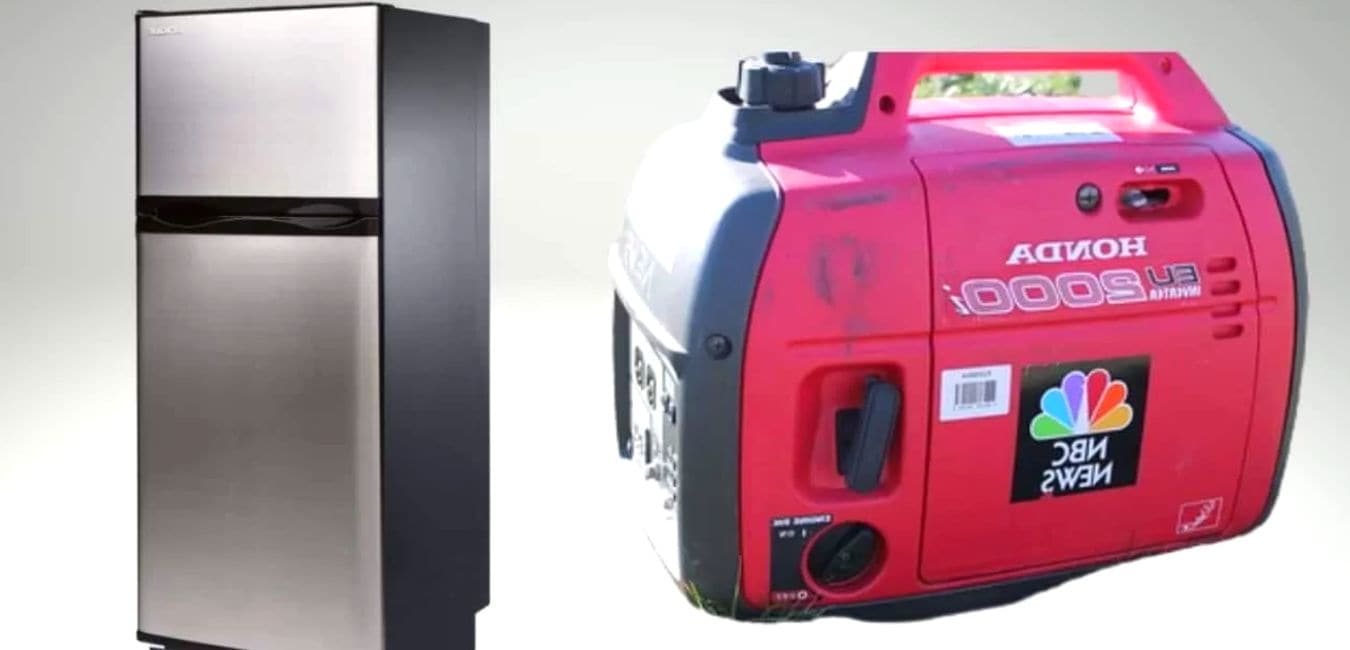
How to hook up the fridge to the generator?
Hooking up the refrigerator to the fridge is not a very technical thing; anyone can do it with proper caution
- Check the watts on the refrigerator and the generator
- If everything is fine, insert the extension cable into the generator
- Turn the generator on
- Check if the refrigerator is working properly
How long to run the generator for a refrigerator?
Many people believe that your generator ought to be able to keep your refrigerator running for however long you require it to if it has high capacity and you have enough fuel resources.
This can be possible, but for that, you will need a lot of fuel to keep it running for hours on end. It will lie heavy on your pockets too.
Technically, when you start your generator it takes time to warm up. It’s not like you have turned on the switch and it gets heated up. It takes several hours, as the temperature rises gradually both inside and outside. Suppose, if you are running your refrigerator for 4 hours it would stay cool for 2 hrs without electricity. However, the actual duration can vary depending on the model.
So you can turn off the generator every 4 hrs, it will save fuel and money as well. As long as your home has power, you should be able to carry on in this way.
Tips for Generator Safety
As we have discussed earlier, maintenance of the generator is necessary if you don’t want to damage your other home appliances. So, let’s have a look at some of the tips for generator safety:
Run Generator in an open place
It is not recommended to run a generator in a garage or inside the house as the generator releases carbon monoxide which is very dangerous for living beings. So, run a generator in an open place or outside the building. Ensure the object is at least 15 feet away from your home.
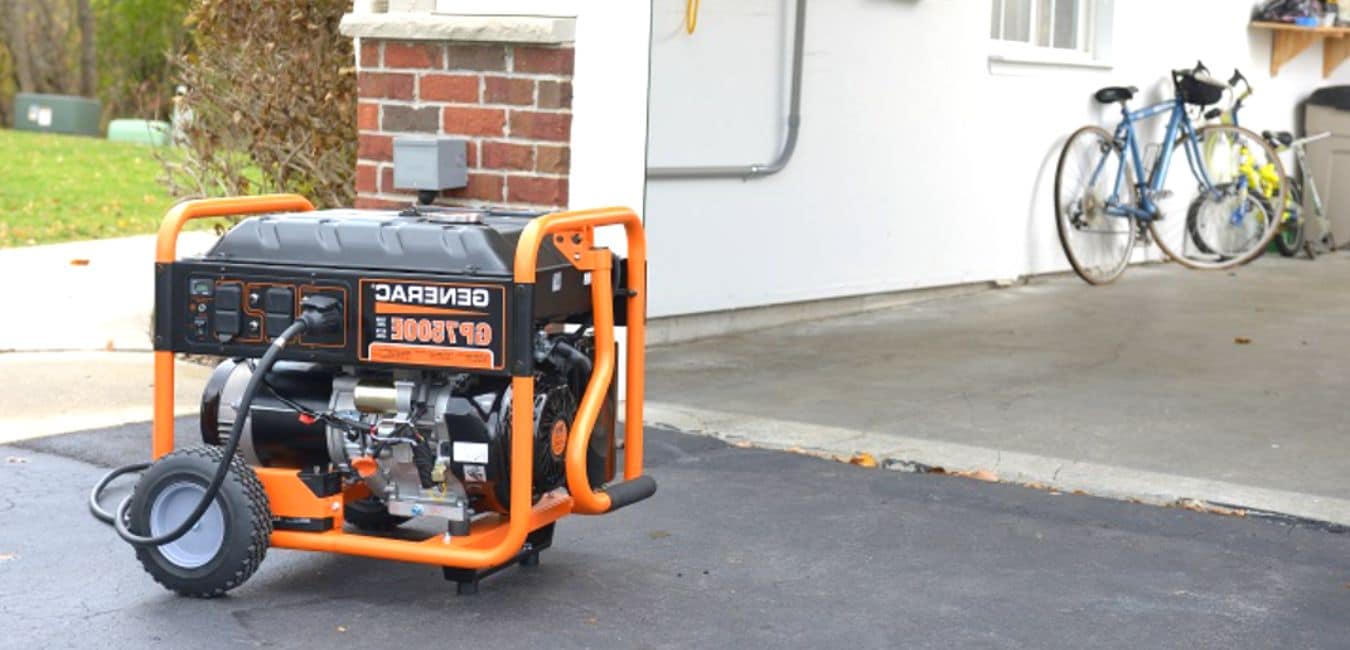
Read User Manual
Generators accompany a user manual with them in which all the details of the product are clearly written in it. Reading this manual will help you in finding the right way to operate the generator, its wattage capacity, and much more.
Good Quality Engine Oil
Good quality engine oil enhances the efficiency of the generator. It lubricates all the parts of it thus making it less noisy. Usually, manufacturers mention the right oil that is good for the generator so, read the manual carefully and add oil of good quality.
Suitable Connection
Never use a power cord to connect a generator to an electrical outlet in your house. By doing this, the electricity will feed back into the electric lines that enter the house. An electrician who comes to the area to restore power may be in danger from the back feed.
Using the Right Power Cord
Power from a portable generator is measured in watts, whereas power from a power wire is measured in amps. The most powerful device must be compatible with the power cord you choose for the connection otherwise a serious hazard may occur.
You must choose a power cord that works with the generator’s highest powerful outlet. The ideal heavy-duty cable should be fewer than 100 feet in length and at least 12-gauge.
Turning on appliances
If your appliances are not properly plugged in, they could harm the generator. Prior to plugging in the devices, run test the generator and give it a brief period of time to run. Then turn off the appliances before plugging them in, then plug them in at various intervals. Before plugging in another device, let each machine start-up and stabilize first.
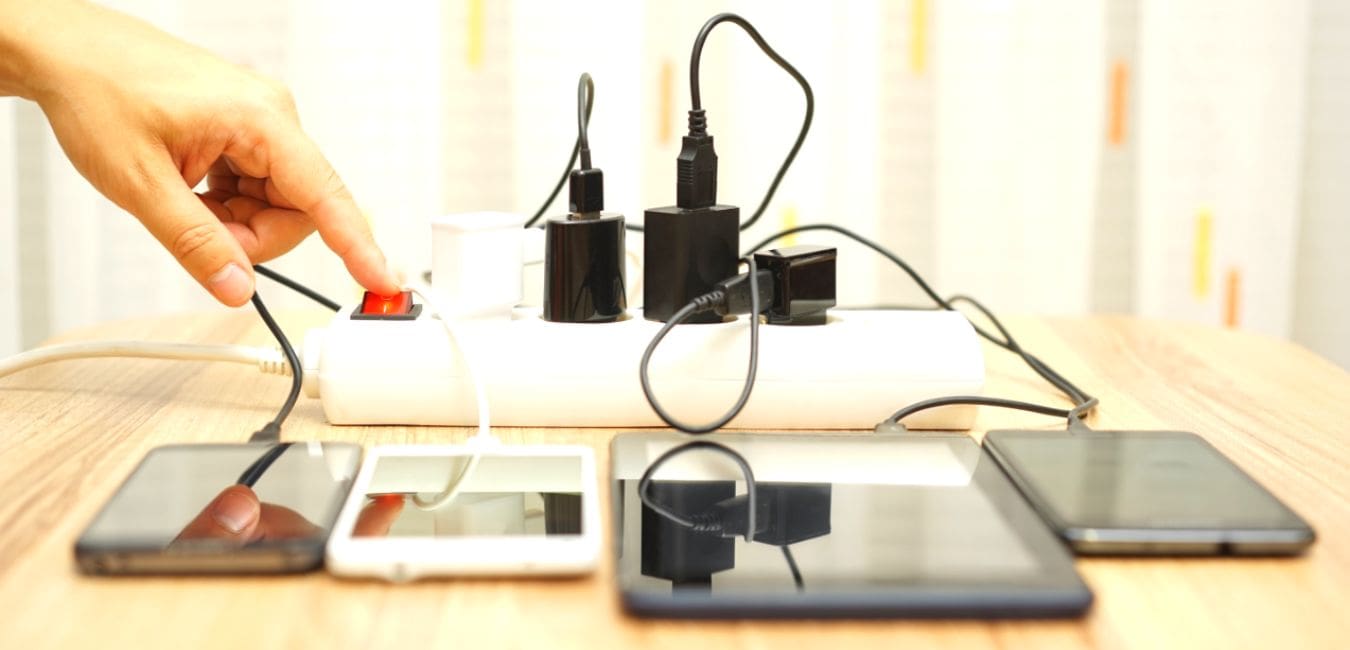
Avoid overloading
Overloading is a serious issue that most people face without knowing. The refrigerator runs on approximately 800 to 1200 watts so the generator must have wattage more than the refrigerator takes to start up. Anything less than 2000 watts will damage the generator as well as the refrigerator. In the absence of wattage information, you can calculate it by dividing the appliance’s voltages by amps.
Refueling
A running generator or the generator that is still hot needs some extra care. Make sure to not refuel it in these cases. In doing so, it’s possible that the heat from the engine’s components or exhaust will ignite the gasoline. You must stop it and let it cool for approximately 10 minutes before refueling.
Change the oil
Changing oil is also a compulsory step for the maintenance of the generator. Make sure to change the oil from time to time to avoid any dirt and debris contaminating it. Smooth oil will also improve the working of the generator.
In case of longer power outages, the oil needs to be changed frequently. The proper intervals for replacement must be found in the owner’s manual. Try keeping track of how long your equipment has been operating if it doesn’t have an hour meter. By leaving the machine off overnight and only plugging in necessary devices, try to conserve gasoline.

Importance of having a Backup Generator
The importance of a backup Generator can’t be overstated. It is your savior in severe power outages. Suppose, you have some preserved food in the refrigerator that needs to be kept cool or frozen otherwise it would be spoiled. In that case, you need a backup plan ready for a power outage. Similarly, there are many essential things that need electricity to be operated and you can’t even manage without them, here too you must have a backup plan for these essentials.
So whatever the case may be a backup generator is truly a blessing for you. Have a reasonable and good capacity generator for your home.
Can a generator damage a refrigerator – FAQs
Conclusion
To conclude, if a generator’s wattage is insufficient, it could harm your refrigerator. Check that the generator can handle the appliance’s initial watt before utilizing it to power your refrigerator. This is what counts most. Aside from ruining your refrigerator, overloading the equipment might harm the generator as well, so avoid doing it.
To make sure the wattage is correct, always check the owner’s handbook of your refrigerator before hooking it in. Use safety precautions when maintaining your generator because doing so will help to keep your appliances from being harmed.


